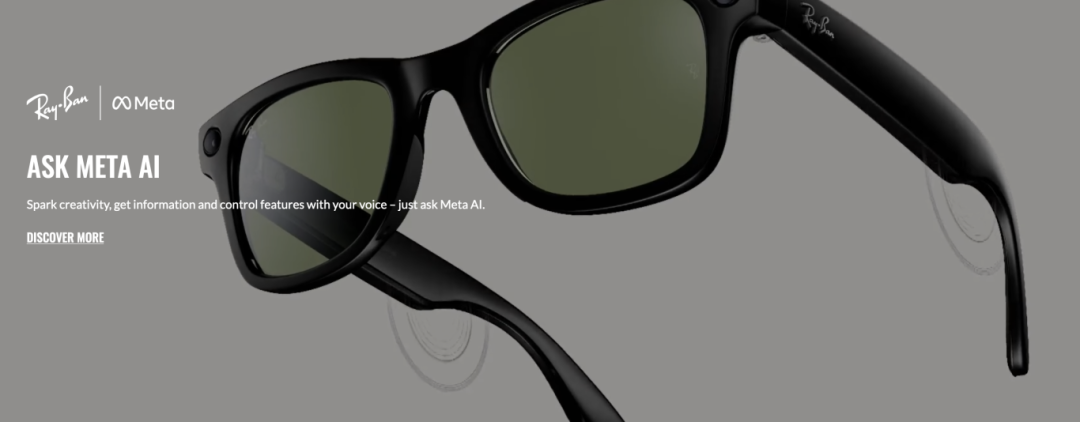The AI glasses market has become lively.
Recently, Shanji, a non-famous 3C brand, launched a pair of AI "PaPaJing" glasses A1, which is known as the "domestic version of Meta Ray-Ban". The price is still very cheap, with an initial launch price of 999 yuan.

Within 24 hours of its release, Shanji achieved a record of 50,000 online reservations. At the meeting, Shanji founder Zhang Bo mentioned that the goal of AI Paipai Mirror is to ship 500,000 units in 2025, which will ensure a break-even point, and will launch dozens of different glasses styles to ensure personalized choices.
Officials said that Shanji AI "Paipai Mirror" uses the Unisoc W517 chip, and is also equipped with 2GB RAM and 32GB ROM. The AI and ISP performance are particularly outstanding. The former is 4 times that of the same-level competing products, supporting AI night scene enhancement, AI noise reduction, AI anti-shake, etc. The latter also has a dual ISP design solution.
Domestic chips have brought down the price
It is publicly shown that the Flash AI "PaPa Mirror" is based on the low-power ARM platform of the flagship machine of Ziguang Zhanrui, and has launched a long-life AI glasses platform architecture called "Shadow Pupil Architecture 1.0", which adopts dual main control chips and dual system architecture.
The W517 chip is Ziguang Zhanrui's 4G flagship smart wearable platform. It uses a quad-core processor with the advantages of high performance and low power consumption. It has built-in ultra-micro high integration technology and uses advanced technology. The computing power is 4 times higher than that of the same-level competitors, and it has been adopted by many smart glasses.
The smart communication positioning circle learned that in the current AI glasses market, Qualcomm AR1 and Ziguang Zhanrui W517 are the two main control chips that dominate.
Qualcomm AR1, with its excellent ISP (image signal processor) performance and strong AI processing capabilities, has dominated the high-end market and successfully won the favor of industry-leading brands such as Meta, Xiaomi and Rokid. However, its cost of up to US$50 to US$60 also directly affects the selling price of AI glasses. Take Ray-Ban Meta glasses as an example. The price of its basic model is as high as US$299 (about RMB 2,200).
Compared with Qualcomm AR1, although the performance specifications of Unisoc W517 are somewhat different, its single chip price is only about US$10. With a cost advantage of US$40-50, it has successfully attracted emerging brands represented by Shanji. These brands focus on the cost-effective market. By choosing Unisoc W517, Shanji can effectively control product costs while ensuring core functions. The lower chip cost enables Shanji to reduce the price of its Paipai mirror to RMB 999, creating the "thousand-yuan machine" era of AI glasses.
In 2023, Unisoc mass-produced dual-core 4G smart wear platforms W377 and W377E for Android system, as well as flagship 4G AI smart wear platform W517, high-performance 4G 4-core smart wear platform W527, etc.
At the end of November this year, Unisoc's first 5G smart wear platform W917 was unveiled. According to reports, the chip is manufactured using a 6nm process, the baseband has been stably mass-produced, and supports 4/5G multi-mode; the CPU is an ARM A76+A55 large and small core architecture, which can dynamically change frequency and unplug cores according to application scenarios, bringing better battery life; built-in Sensor Hub; supports AI single-microphone noise reduction, AI anti-shake, AI face recognition and other AI applications, and cooperates with 5G high-speed network to record life moments anytime and anywhere.
In addition to hardware, in terms of software required for AI glasses, AI large model technology is developing rapidly, and related technological advances such as multimodality, reinforcement learning, voice recognition & semantic understanding have brought AI a broader imagination space for reshaping smart glasses.
Taking the Shanji AI "PaPa Mirror" as an example, in terms of cloud AI services, it has or will soon be connected to more than ten mainstream large model manufacturers in China, including iFlytek Spark, Yuntian Lifei, Kimi, Minimax, Tongyi Qianwen, Zhipu, Doubao, SenseTime, and Wenxin Yiyan.
Another domestic AR glasses manufacturer, Rokid, has deeply integrated the algorithm capabilities of Alibaba's Tongyi Qianwen big model, and will also connect to Alipay's AI intelligent body Zhi Xiaobao, introducing AI services, voiceprint payment and other capabilities.
Guojin Securities Research Report pointed out that in 2025, AI glasses with audio and cameras are the best wearable devices for the current AI model application. With the improvement of multimodal model capabilities and the maturity of AI Agent, product functionality and application scenarios will be greatly improved, and continue to be optimistic about the large-scale release of AI glasses in 2025.
AI glasses are about to explode
According to the Betzers smart glasses market research report, the smart glasses market is expected to reach 106.778 billion yuan by 2029, with a compound annual growth rate of 18.56%. Catalyzed by the high-growth market space and potential market size, AI glasses are becoming more popular.
At present, there is at least one benchmark product with an annual sales volume of more than 1 million units in the market - Ray-Ban Meta glasses released in October 2023. According to estimates by many institutions, by the end of this year, the cumulative sales of Ray-Ban Meta, which starts at $299, will exceed 2 million units, or 4.3 billion yuan in sales, and is expected to double next year. Meta founder Zuckerberg himself said: "We seriously underestimated its demand."

Industry insiders pointed out that AI glasses have become a new trend in the smart wearable market and may lead the next generation of terminal revolution. AI glasses not only have virtual visual enhancement effects, but also integrate artificial intelligence algorithms to achieve real-time analysis of user behavior and environment, providing more accurate and personalized services. As costs gradually decrease, AI glasses are expected to be further widely used.
This paper is from Ulink Media, Shenzhen, China, the organizer of IOTE EXPO (IoT Expo in China)


















